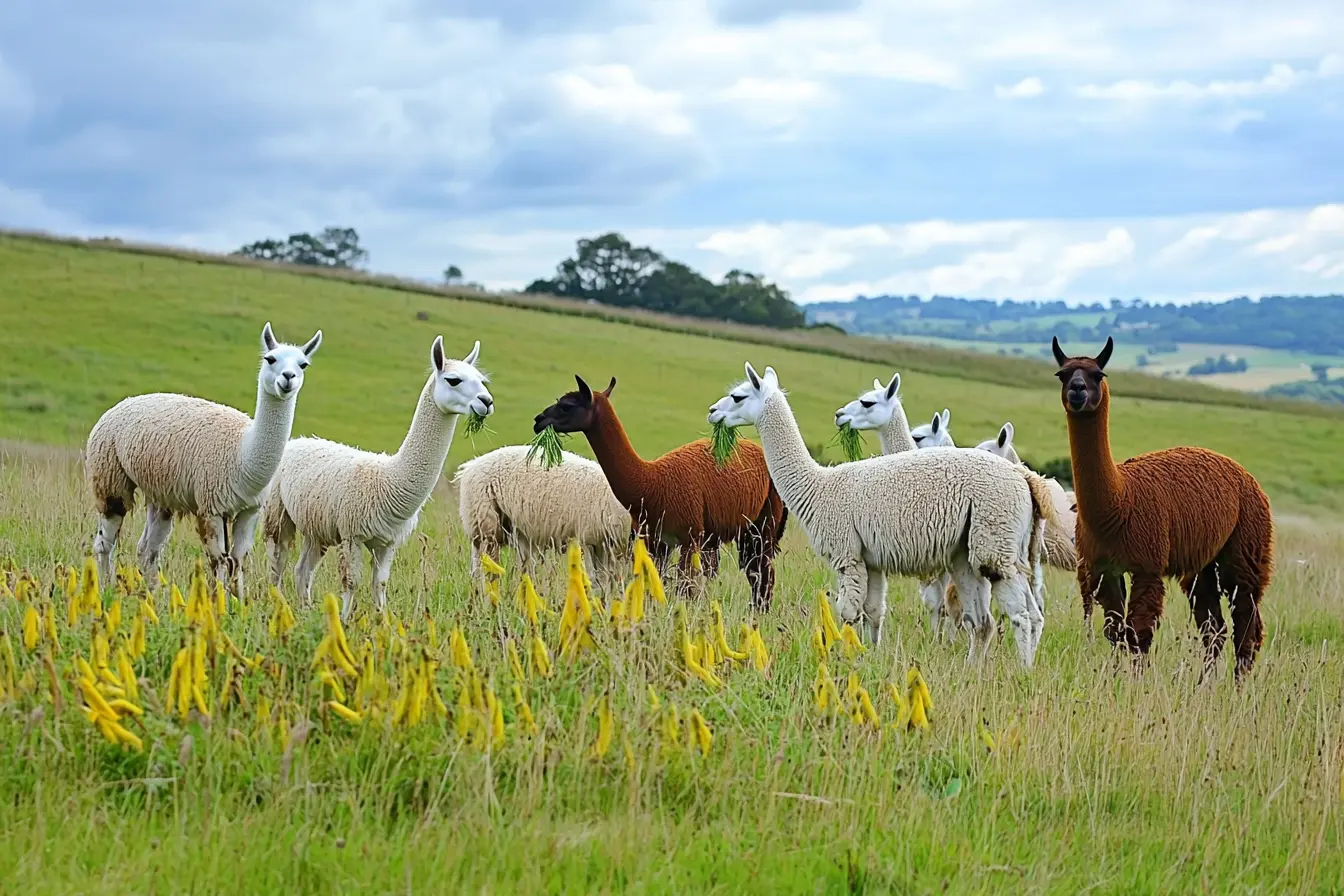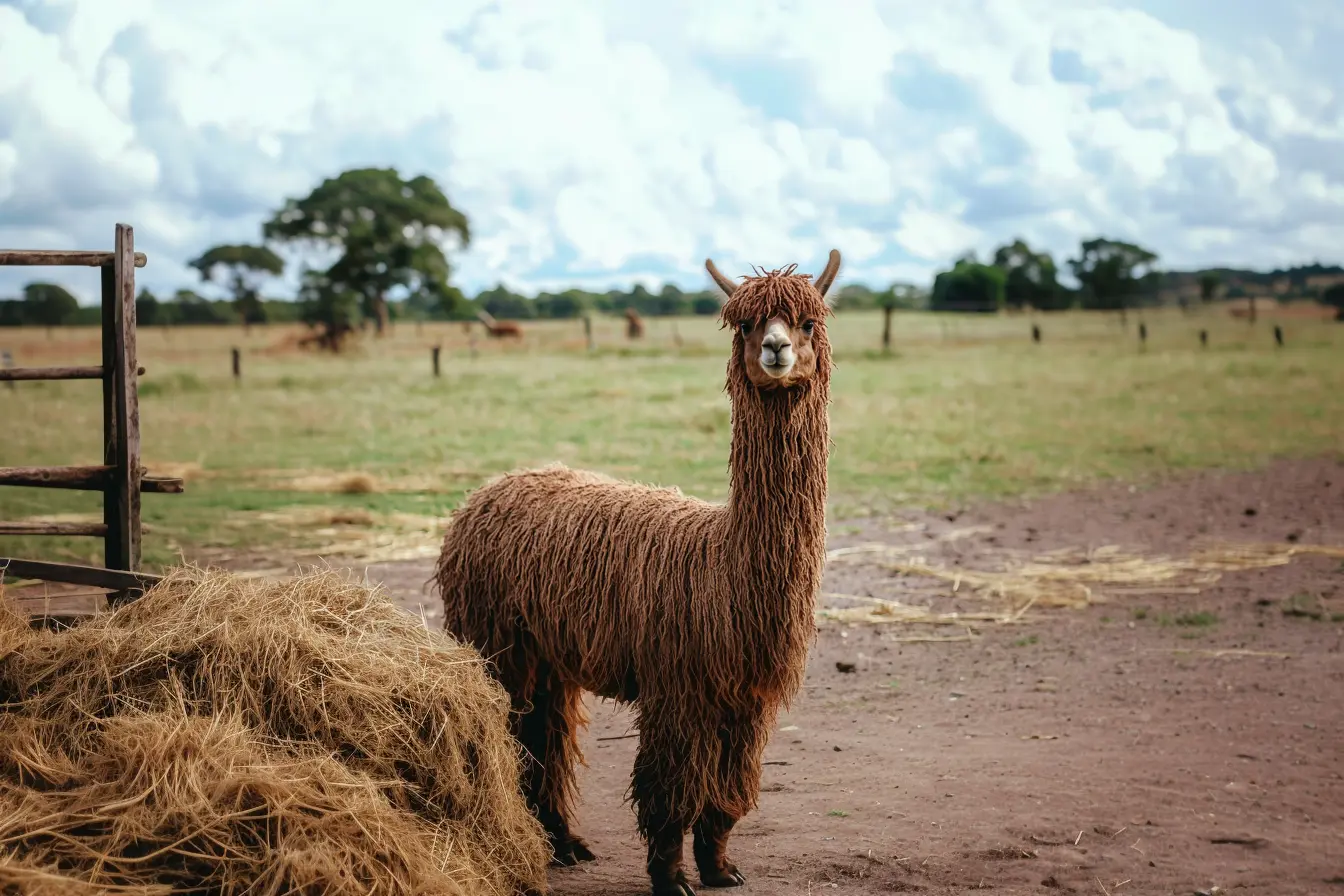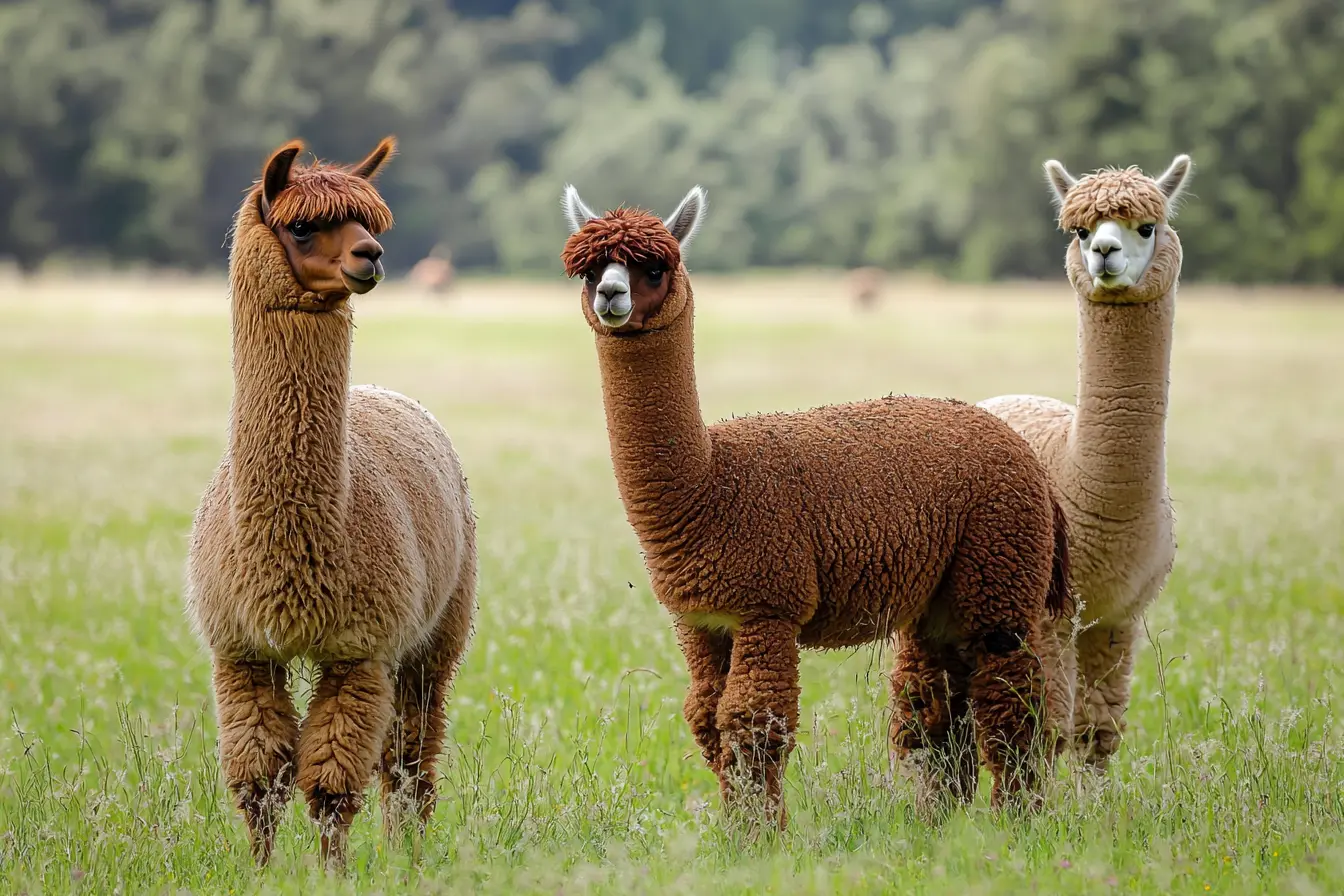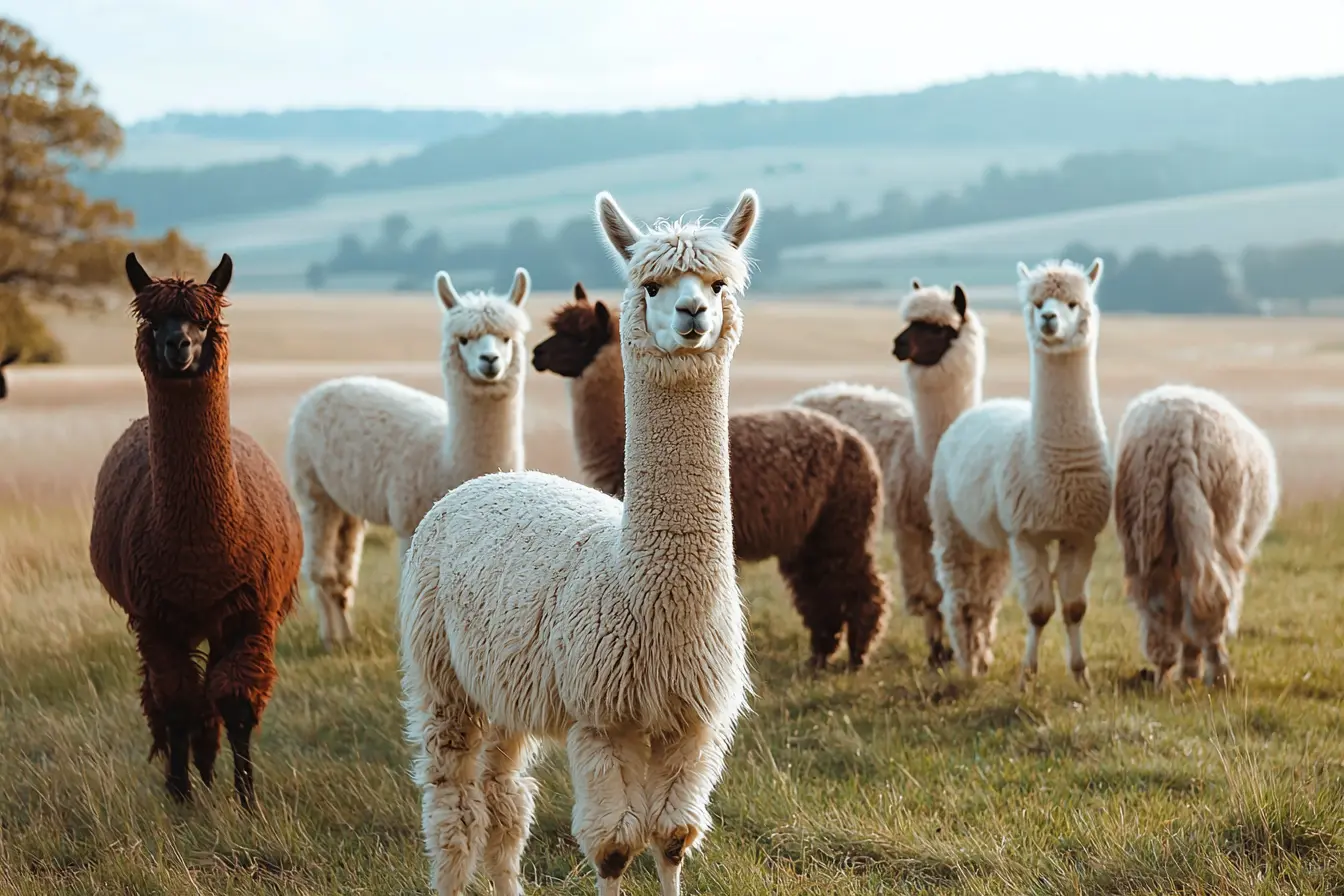
A Comprehensive Guide to Alpaca Dietary Requirements for New Owners
Welcome to the wonderful world of alpaca ownership! These gentle, curious creatures make delightful companions and valuable livestock. To ensure your alpacas thrive, it's essential to understand their dietary requirements. This guide covers everything you need to know about feeding your alpacas, from their basic nutritional needs to specific dietary considerations.
Understanding Alpaca Nutrition
Alpacas are herbivores, primarily grazing on grasses and plants. Their digestive system is adapted to extract nutrients efficiently from fibrous plant material. Here are the key components of an alpaca's diet:
-
Forage:
- Grass and Hay: The bulk of an alpaca's diet should consist of good quality grass or hay. Ideally, alpacas should have access to pasture, where they can graze freely. If pasture is limited, provide them with hay. Timothy, orchard grass, and alfalfa are excellent options. Ensure the hay is free from mould and dust.
- Grazing: If you have pasture land, rotational grazing can help maintain the quality of the forage and prevent overgrazing. Aim to provide at least 1-2 acres of pasture per alpaca.
-
Supplements:
- Concentrates: While forage should make up the majority of an alpaca's diet, concentrates like pellets can be provided to supplement their nutritional needs, especially for pregnant, lactating, or growing alpacas. Choose a balanced alpaca feed that is low in sugars and high in fibre.
- Minerals and Vitamins: Alpacas require specific minerals and vitamins, such as calcium, phosphorus, magnesium, and vitamin D. A free-choice mineral supplement formulated for alpacas can help meet these needs. Ensure the mineral supplement includes salt, as alpacas need it for their health.
-
Water:
- Fresh, clean water should be available at all times. Alpacas can drink up to 8-12 litres of water per day, depending on the weather, their diet, and their physiological status.
Special Dietary Considerations
-
Nutritional Requirements for Different Life Stages:
- Crias (Young Alpacas): Crias rely on their mother's milk for the first few months. As they grow, they will start to graze and eat hay. Introduce small amounts of pellets formulated for young alpacas to support their growth.
- Pregnant and Lactating Females: These alpacas have higher nutritional needs. Provide additional concentrates and ensure they have access to high-quality forage. Monitor their body condition and adjust their diet as needed.
- Older Alpacas: Senior alpacas may have dental issues that make chewing difficult. Consider softer, more easily digestible forage and supplements to ensure they receive adequate nutrition.
-
Seasonal Variations:
- Winter: During colder months, the nutritional needs of alpacas increase to maintain body heat. Ensure they have access to ample forage and consider supplementing with additional hay or pellets.
- Summer: In hot weather, alpacas may reduce their feed intake. Ensure they have plenty of shade and fresh water to stay hydrated.
-
Health Monitoring:
- Regularly check your alpacas' body condition score (BCS) to ensure they are maintaining a healthy weight. A BCS of 5-6 is ideal for most alpacas. Adjust their diet based on their BCS, activity level, and any health concerns.
Avoiding Common Dietary Pitfalls
- Overfeeding Grain: Alpacas can suffer from digestive issues if fed too much grain. Stick to forage as the primary food source and use concentrates sparingly.
- Inadequate Fibre: Ensure alpacas always have access to fibrous forage to support their digestive health.
- Poor Quality Hay: Low-quality hay can lead to nutritional deficiencies and health problems. Always source high-quality hay free from contaminants.
Final Thoughts
Understanding and meeting your alpacas' dietary needs is crucial for their health and well-being. By providing a balanced diet rich in fibre, appropriate supplements, and fresh water, you can ensure your alpacas thrive. Regularly monitor their condition and adjust their diet as needed to cater to their specific life stage and seasonal requirements. Happy feeding, and enjoy the rewarding experience of caring for your alpacas!
Vets near you
Speciality vets
- Aquatics vet specialists
- Birds vet specialists
- Camelids vet specialists
- Cats vet specialists
- Cattle vet specialists
- Deer vet specialists
- Dogs vet specialists
- Equines vet specialists
- Exotic vet specialists
- Goats vet specialists
- Pigs vet specialists
- Poultry vet specialists
- Sheep vet specialists
- Small Mammals vet specialists
- Wild vet specialists
Vet facilities
- Accessible by public transport
- Blood testing
- Car park nearby
- Client car park
- Dentistry
- Diagnostic imaging
- Disabled public access
- Flea and worm treatments
- Microchipping
- Mobile services
- Neutering
- Open at weekends
- Out-of-hours service
- Referral interests
- Referrals only
- Street parking outside
- Toilets available
- Vaccination clinic



